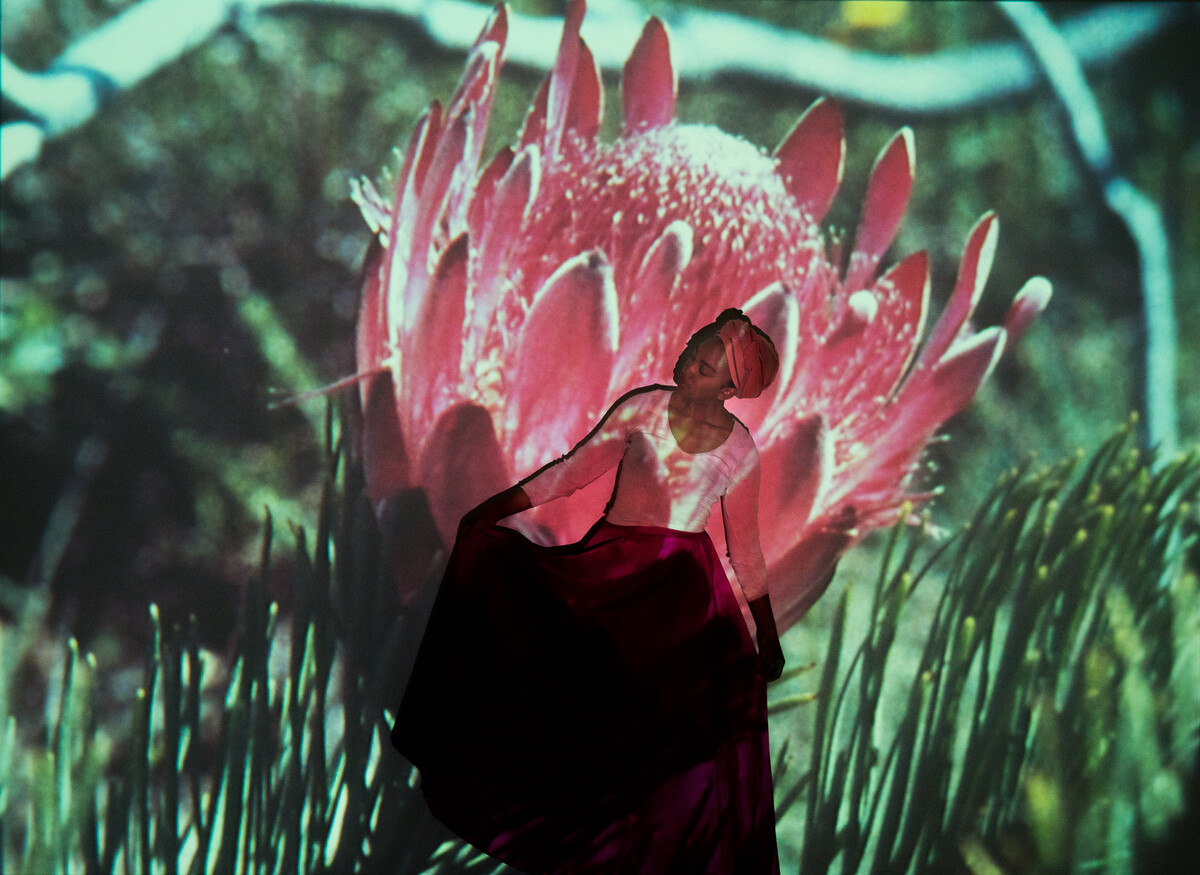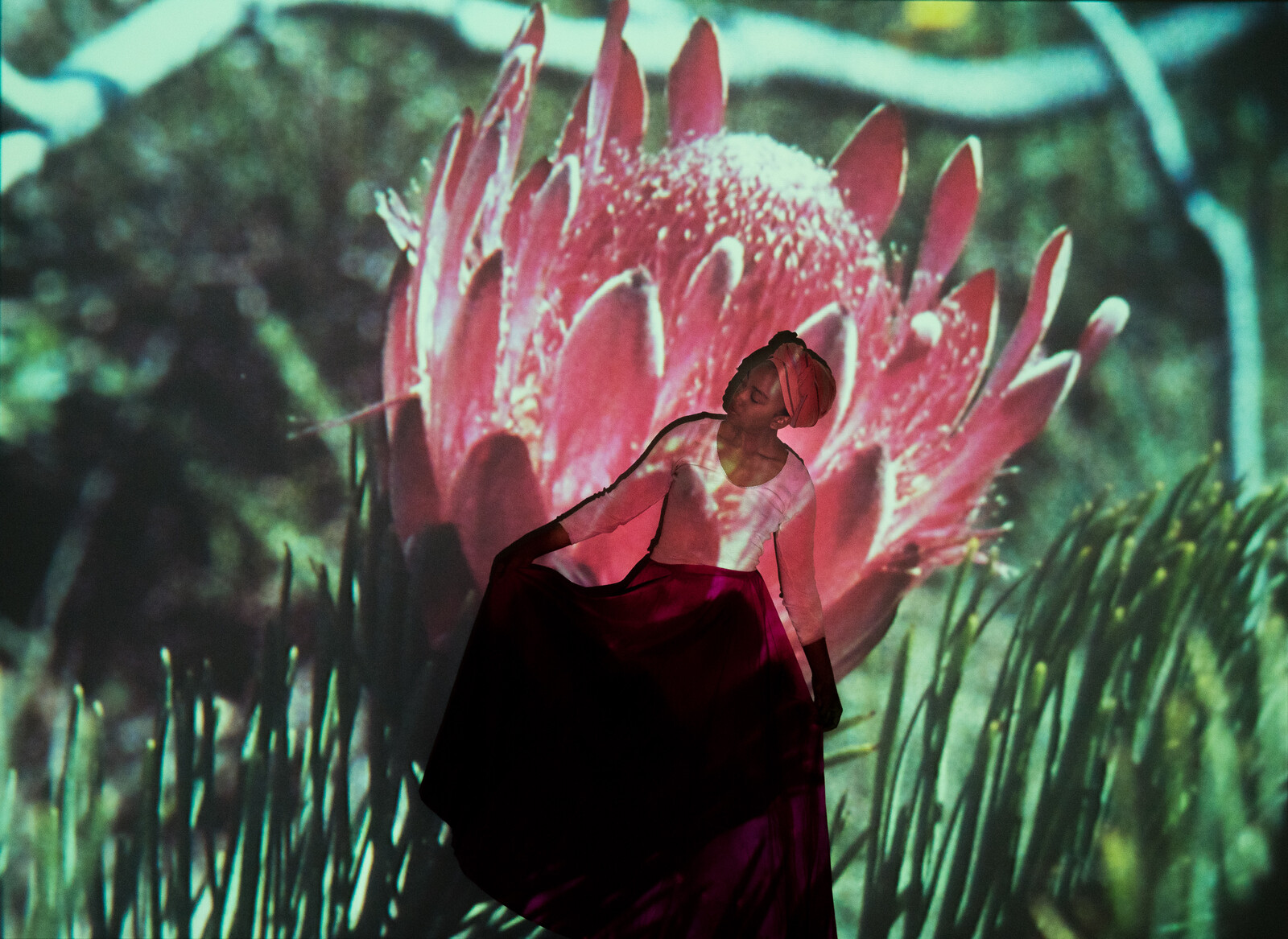Plant Echoes
March 31–July 15, 2018
Cinema Aurora Modica
via Grimaldi 93
97015 Modica Ragusa
Italy
Hours: Monday–Saturday 10am–7pm
T +39 0932 188 1704
info@gallerialaveronica.it
Laveronica Arte Contemporanea is delighted to present the exhibition Plant Echoes by Uriel Orlow.
One of the most significant themes in Uriel Orlow’s work has been the challenging of methodologies of erasure. Whether he is investigating the legacy of colonialism and postcolonialism in Africa, the Caucasus or the Middle-East, Orlow’s quiet and meticulous multi-media practice re-peoples ghosted histories and delivers fresh ways to think about socio-political interstices that have been overlooked or overmediated.
In this exhibition, Orlow’s interest in how colonialist categorisation expunges indigenous systems of knowledge and belonging, took him to South Africa. Here, he found that not only did the British and Dutch re-name indigenous plants and try to eradicate as dangerous the use of herbal remedies, they also imported 9000 different exotic plants, many of which choked local flora. Orlow’s extraordinary new body of work uses plants as a potent lens through which to explore the socio-political, economic and spiritual ramifications of colonialisation.
Orlow focuses on the important role of medicinal herbs or “muthi” in South African culture, with 60% of the population consulting a healer, who can choose from over 3000 plant species. With European pharmaceuticals exploiting the market for “natural” cures, a new front has opened in the contest of who owns what the land grows, has always grown. In What Plants Were Called Before They Had A Name (2015–ongoing), male, female and collective voices recite the names of native plants in ten African languages, from isiZulu and SePedi to isiXhosa and Khoi, which had no legitimacy under a Latin taxonomy. “Language relates to politics,” says Orlow, “and plant classification can be a form of epistemic violence.” In this sense, the surround sound audio piece acts as a restorative and moving oral dictionary.
“Echoes” (2017) is a series of photographs of dried brown sap stains on protective paper from botanical repositories in South African herbaria which date back to the colonial era of exploration. The tracings tell nothing of the traditional names or uses of the plants and highlight the imposition of a one-dimensional classification system that was revered as objective and unrivalled. It’s difficult to look at these frail residues, which contrast the tending delicacy of the botanists working amidst the cruel and murderous savagery of apartheid and colonialism before.
The Fairest Heritage (2016–17), poignantly intercepts a version of history. During his research, Orlow discovered a film made in 1963 to celebrate the 50th anniversary of Kirstenbosch, the national botanical gardens of South Africa. Only three years after the Sharpeville Massacre and a year before Mandela’s incarceration for life on Robben Island, fifty international botanists toured South Africa, in a whites-only garden party. Orlow invited an African actor, Lindiwe Matshikiza, to interact with the projected images, delivering an elegantly silent addendum to the past, when the trade in exotic flowers evaded the boycott of South African goods till the late 1980s.
In this show, Orlow continues and develops his sensitive and pertinent re-working of histories, staging old documents in new settings, giving voice to those who have been muted to reconsider how agency can be re-enforced by art.
Uriel Orlow lives and works between London, Lisbon and Zurich.
Orlow’s work was presented at major survey exhibitions including the 54th Venice Biennale (2011), Manifesta 9 in Genk (2012), EVA International (2014, 2016), 13th Sharjah Biennial 13 (2017), 7th Moscow Biennial (2017). Recent institutional solo exhibitions include PAV – Parco Arte Vivente (2017) Parc Saint Léger (2017) The Showroom, London (2016); Castello di Rivoli, Turin (2015).
Orlow’s work has also been shown in museums, galleries internationally including in London at Tate Modern, Tate Britain, Whitechapel Gallery, ICA and Gasworks; in Paris at Palais de Tokyo, Fondation Ricard, Maison Populaire, Bétonsalon; in Zurich at Kunsthaus, Les Complices, Helmhaus and Shedhalle; in Geneva at Centre d’Art Contemporain and Centre de la Photographie; at Kindl, Berlin; Württembergischer Kunstverein Stuttgart; Alexandria Contemporary Art Forum (ACAF) and Contemporary Image Collective (CIC) Cairo; Tabakalera, San Sebastian; Jewish Museum New York amongst many other venues.



